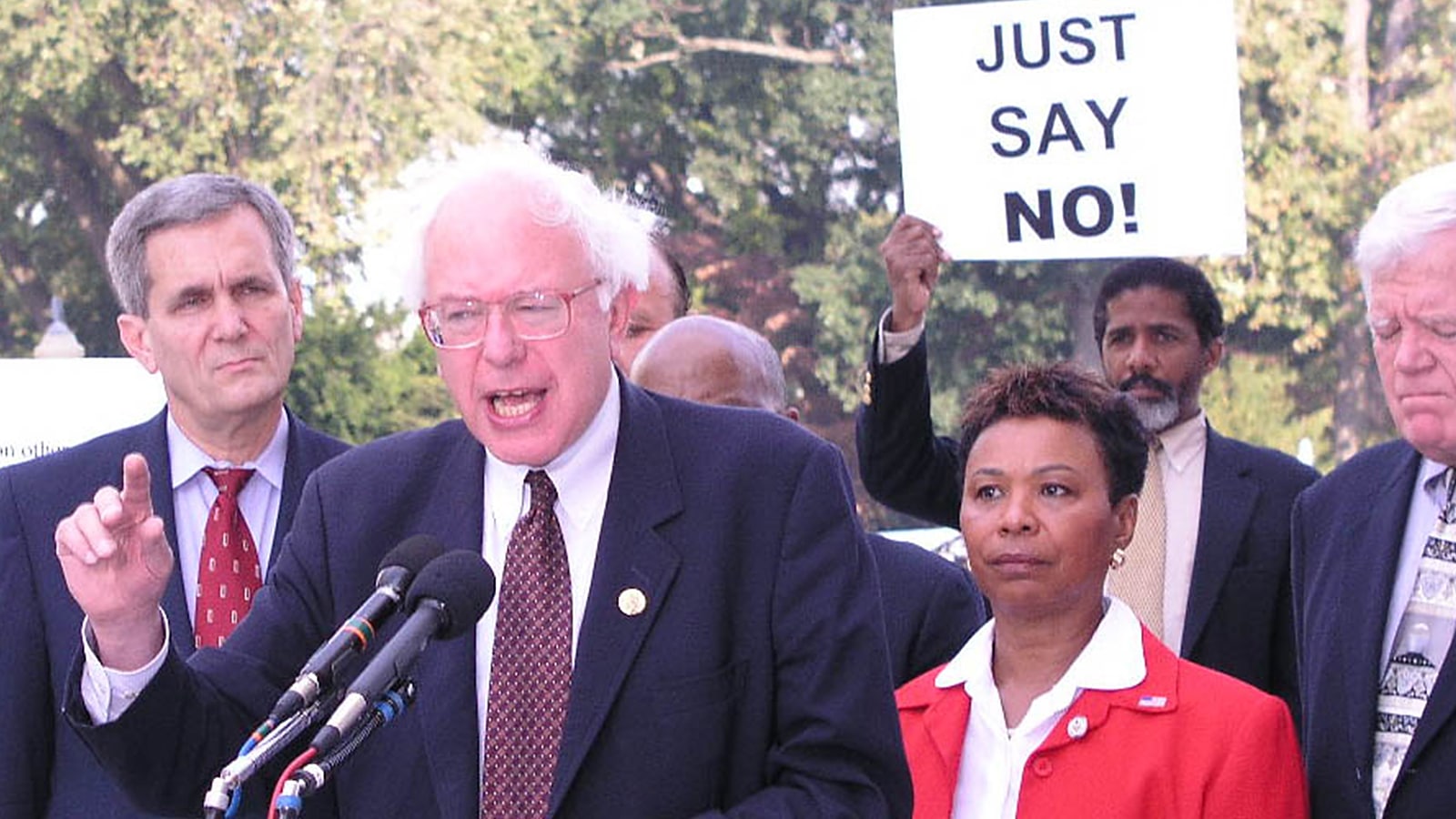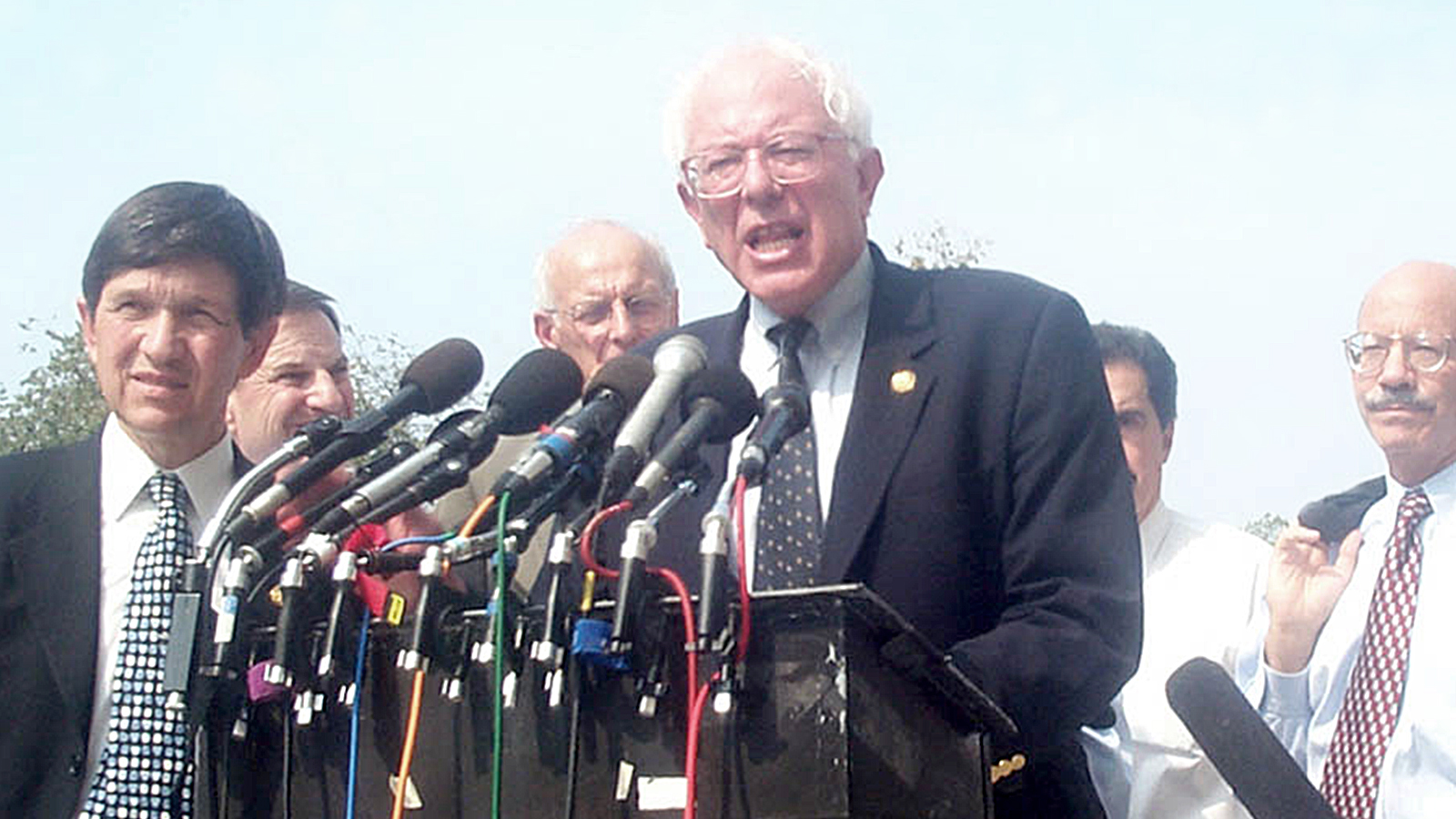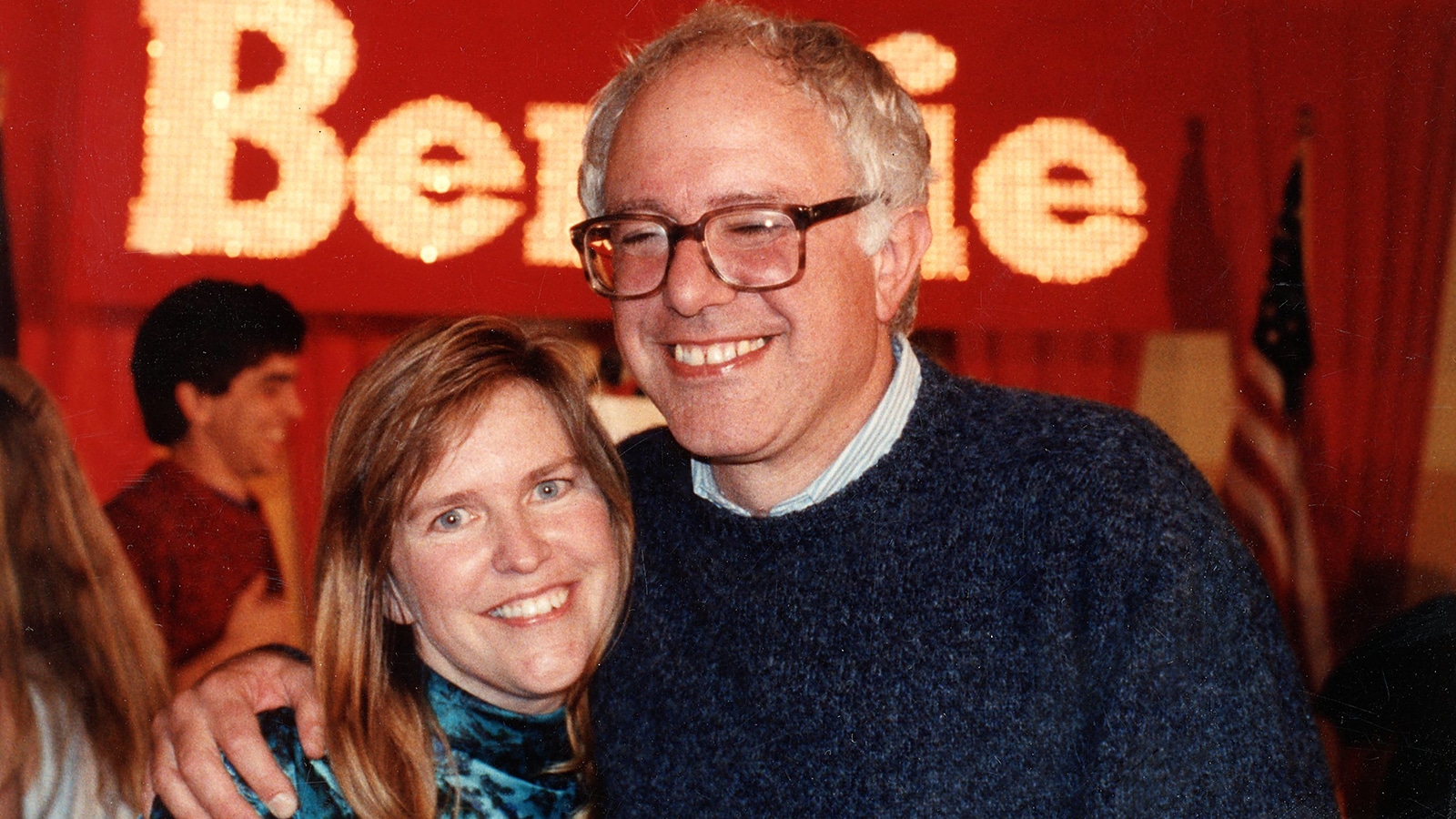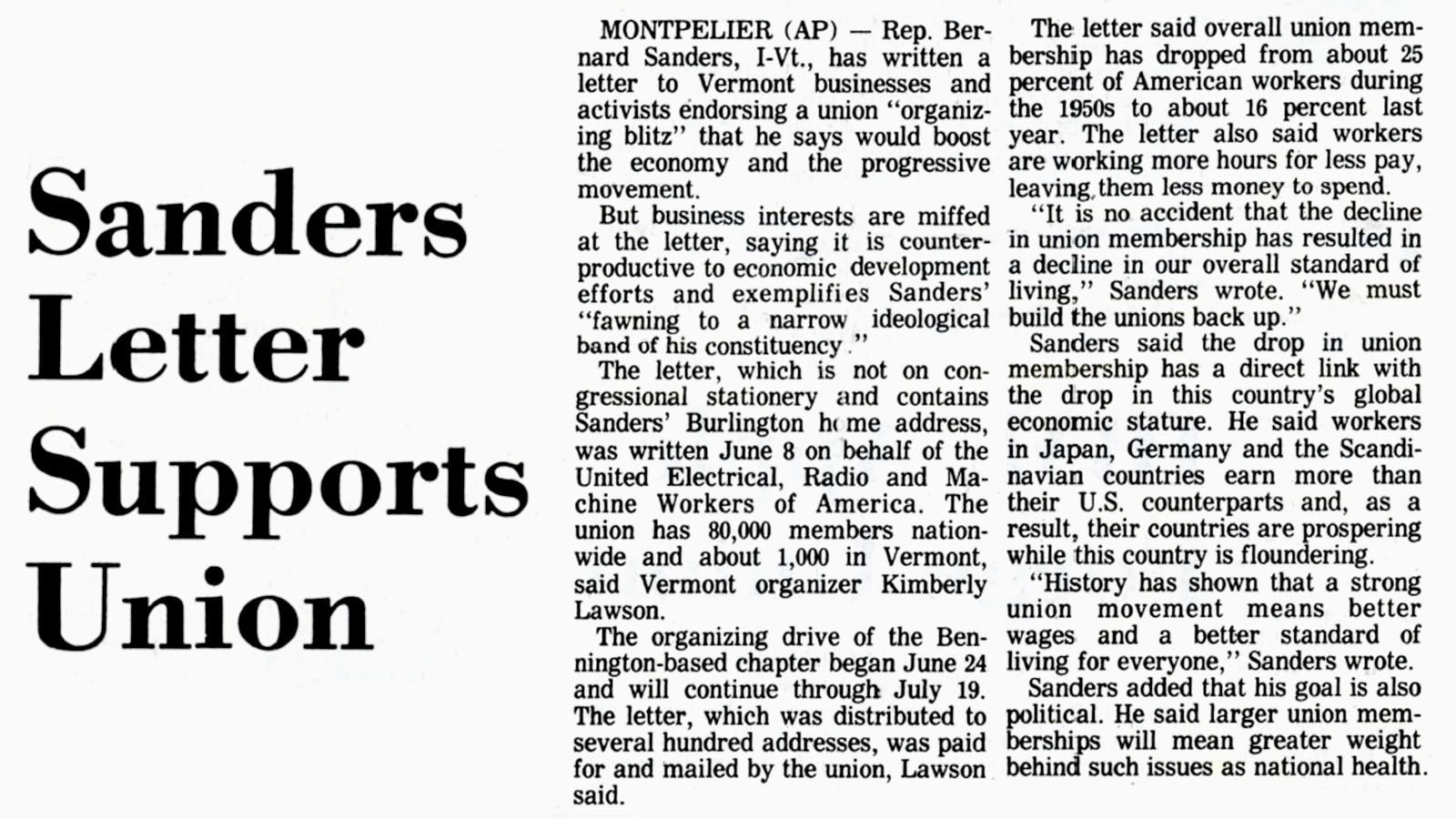Two weeks after Bernie Sanders’ inauguration into the House of Representatives, he voted against the Persian Gulf War resolution. His stance held firm a decade later: in 2002, he was one of the leading voices in opposition against President Bush’s Iraq War.
SPEECH OF REP. BERNARD SANDERS ON THE WAR[1]
HOUSE OF REPRESENTATIVES, THURSDAY, 17 JANUARY 1991
Mr. Speaker, we should make no mistake about it.
Today is a tragic day for humanity, for the people of Iraq, for the people of the United States and for the United Nations as an institution. It is also a tragic day for the future of our planet and for the children — 30,000 of whom in the Third World will starve to death today while we spend billions to wage this war, and 25% of whom live in poverty in our own country because we, apparently, lack the funds to provide them a minimal standard of living.
Mr. Speaker, despite the fact that virtually the entire world has been united against Sadam Hussein, a two-bit vicious dictator who illegally and brutally invaded Kuwait, the President concluded that there was no way of resolving this conflict and achieving our goals — other than waging a massive war, perhaps unprecedented in the history of the world in terms of the death and destruction wrought in its first.day as a result of our aerial attack.
Mr. Speaker, there are three immediate concerns that I have regarding the current tragedy. First, despite -the fact that we are now allied with such Middle Eastern governments as Syria — a terrorist dictatorship; Saudi Arabia and Kuwait feudalistic dictatorships; and Egypt — a one-party state which received $7 billion in debt forgiveness to wage this war with us, I believe that in the long run, the action unleashed last night will go strongly against our interests in the Middle East. Clearly, the United States and its allies will win this war — but the death and destruction caused will not, in my opinion, soon be forgotten by the Third World in general — and by the poor people of the Middle East in particular.
I fear very much that what we have said yesterday is that war, and the enormous destructive power of our armed forces, is our preferred manner for dealing with the very complicated and terrible crisis in the Middle East. I fear that someday we will regret that decision and that we are in fact laying the groundwork for more and more wars in that region in years to come.
Secondly, Mr. Speaker, while there is no question in my mind that the United States government and its allies will win this war, I am not at all sure that the people of our country, especially the working people, the poor people and the elderly will win. The two million homeless people in our country, sleeping out on the sidewalks and under the bridges, are not going to win this war. There will be no money available to house them. The tens of millions of Americans who cannot afford health care today are not going to win this war. There will be no money available for their needs. The family farmers in Vermont who are today being driven off of their land are not going to win this war, nor will the children or the elderly who, in all probability; will see cutbacks in their Social Security and Medicare checks in order to fund it.
Mr. Speaker, it is incumbent upon us to do everything in our power, now that the war has started, to prevent unnecessary bloodshed and to support our troops in the most basic way — by bringing them home alive and well. I urge my fellow members to ask the President to stop the bombing immediately and request that the Secretary General of the United Nations go to Iraq to begin immediate negotiations for the withdrawal of Iraq from Kuwait and the cessation of the war. Let us do everything in our power to stop unnecessary bloodshed.
 Back to Timeline
Back to Timeline




